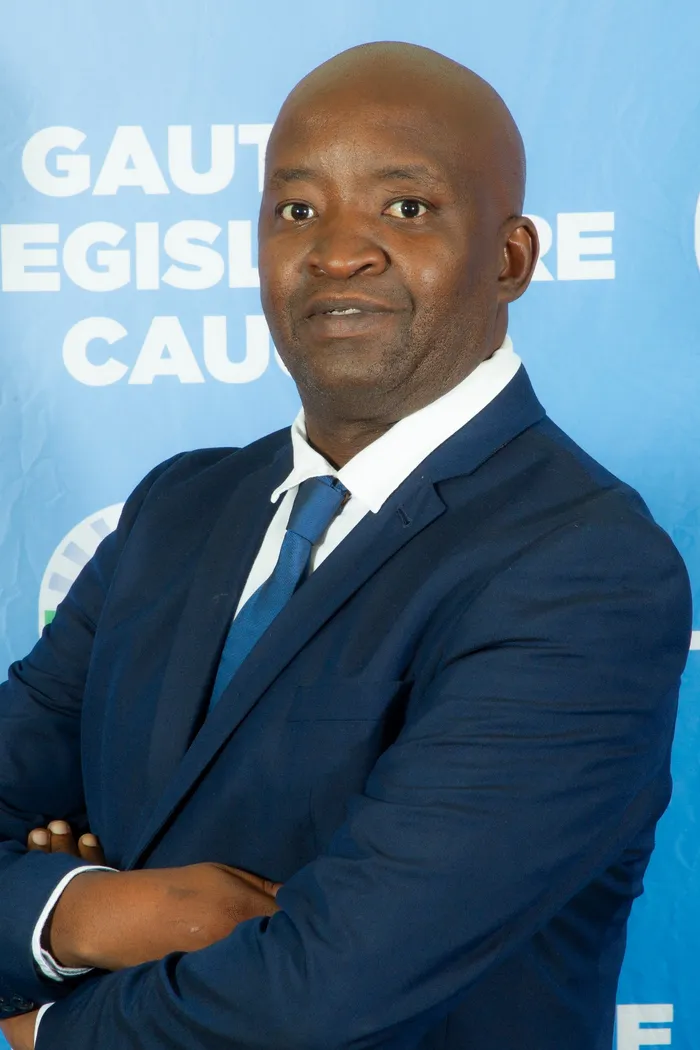Neglected Gauteng heritage sites a missed opportunity to grow the economy

Kingsol Chabalala MPL, DA Gauteng Shadow MEC for Sports, Arts, Culture and Recreation (SACR).Picture: Supplied.
As Heritage Month faded into memory, there’s a palpable feeling of missed chances and unfulfilled potential.
The monuments that should stand as proud testaments to our history and resilience now serve as reminders of bureaucratic inefficiency and wasted potential.
The Women’s Living Heritage Monument, a R200 million tribute to the spirit of South African women, stands silent and unused, its gates locked due to shoddy workmanship and a missing occupancy certificate.
Despite an additional R80 million poured into its resurrection, it remains a dormant giant, with its potential to inspire and educate untapped.
In the heart of Soweto, the once-vibrant Walter Sisulu Square crumbles, a R160 million monument has been reduced to a shell of its former glory.
Where once stood a beacon of hope and history, now lies a haven for criminal activity and urban decay. The square that should be buzzing with tourists and local entrepreneurs instead echoes the hollow sounds of neglect.
The Boipatong Monument and Youth Centre, conceived as a place of remembrance and opportunity, has never fulfilled its promise since its 2015 inception.
Over R12m in operational costs later, it stands as a monument not to our heritage but to the inability of the Gauteng Department of Sports Arts Culture and Recreation to transform vision into reality. The youth of Boipatong, who should be benefiting from computer facilities and educational programmes, are left disappointed.
In Kagiso, a state-of-the-art memorial and recreation centre stands in abandonment. The R14m earmarked for its heritage component has vanished along with the service provider, leaving precious artefacts stored in makeshift conditions.
These are not mere buildings or attractions; they are the physical embodiments of our stories, struggles, and triumphs. Their neglect is a betrayal of the heritage they were meant to preserve and celebrate.
But beyond the cultural loss, we must also reckon with the economic opportunities that could have been created.
Imagine these monuments as they were intended: vibrant hubs of cultural exchange and education. Picture tourists from across the globe, drawn to Gauteng not just for its economic prowess but for its rich historical narrative.
Imagine local communities busting with an influx of visitors, with small businesses flourishing in the shadow of these cultural landmarks.
The potential economic impact is huge. A well-maintained and operational heritage site does not only preserve history, it creates jobs, stimulates local economies, and puts Gauteng on the map as a must-visit destination for cultural tourism.
From tour guides to local entrepreneurs, hospitality workers to maintenance staff, each operational monument could be a micro-economy.
Moreover, these sites could serve as incubators for the next generation of South African creatives and entrepreneurs. Youth centres equipped with modern facilities could provide skills training, bridging the digital divide and empowering our young people to compete in the global marketplace.
The recording studio in Kagiso, now silent, could be nurturing the next generation of South African musicians.
Instead, we find ourselves in a province where millions in taxpayer money have been poured into concrete shells that stand as monuments to mismanagement rather than to our shared heritage.
The lost opportunities for economic growth, job creation, and community development are incalculable.
This year’s Heritage Month, the Democratic Alliance (DA) reminded Gauteng residents that they must not be content with celebrations and empty promises.
It’s time for a hard reset in how we approach the preservation and utilisation of our cultural assets. We will continue to put pressure on the Gauteng Department of Sports, Arts, Culture and Recreation (SACR) to conduct a comprehensive audit of all heritage sites.
We will also demand transparent accounting of funds spent and a clear, actionable plan to bring these monuments back to life.
To the citizens of Gauteng, our heritage is not just in the past; it’s the foundation upon which we build our future. Demand accountability from your leaders.
Insist on transparency in the management of these cultural treasures. We envision what could be if we truly harnessed the power of our heritage to drive economic growth and social cohesion.
A DA government in Gauteng commits not only to remembering our past but to actively shaping our future. We will transform these silent monuments into living, breathing engines of cultural and economic vitality.
Only then can we truly celebrate the rich tapestry of our heritage, not just in words but in the tangible benefits it brings to every citizen of Gauteng.
Kingsol Chabalala MPL, DA Gauteng Shadow MEC for Sports, Arts, Culture and Recreation (SACR)